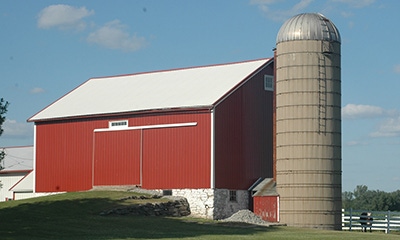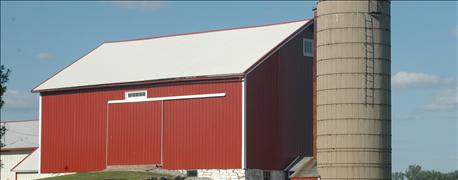March 1, 2016

Today, family farms are often owned and operated by a corporation, limited liability company, LLP, general partnership or some other legal entity which is then owned by the family in some form. An issue that arises is, if land comes up for sale, who should buy it?
Related: Farm succession planning: Customizing a farm estate plan

The main purpose of an LLC is to have that veil of limited liability protection.
If the legal entity used to operate the farm is a corporation, LLC or LLP, the owners of those entities will have an added veil of limited liability protection. This means that if an employee, for example, causes an accident while operating one of the tractors owned by the entity and if there isn’t enough insurance to cover the accident or the insurance company finds a way out of coverage, hopefully only the assets of the legal entity, and not the owner’s other personal assets, are at risk.
Knowing this, some farms elect to put equipment in one LLC or corporation and cattle in another and land in another or something along those lines. However, to preserve those separate veils of limited liability protection, each legal entity must be properly filed with the state, file separate tax returns, be operated as a separate and distinct legal entity (separate checking accounts and appropriate leases and sale agreements in place), and each entity must own at least some of the reasonable and necessary assets needed for the business.
Sometimes, the multiple entity approach is considered to be more burdensome when compared to the small chance of a liability issue arising that wouldn’t be covered by insurance. For example, if a farm has multiple entities it may make the farm ineligible for certain farm programs.
Another aspect to consider when deciding who should buy the land, is the federal estate tax. In 2016, if a person dies worth less than $5,450,000, no federal estate tax is owed. If a person is worth more than that at death, the amount above that threshold is subject to a 40% tax. That means, in 2016, a married couple may have a net worth of up to $10,900,000 before any federal estate taxes are due.
Let’s assume Farm LLC is owned by parents and their two on-farm sons, and Farm LLC owns the building site, the cattle, the machinery and the feed. In addition, the parents own cropland which they lease to Farm LLC. As such, the parents may have a sizeable estate and sufficient financial security for the remainder of their lives, and so perhaps the on-farm sons should buy the land. They then lease the land to Farm LLC in exchange for a rent payment that is used to cover the mortgage payment. It can mean that the farm is paying above fair market value rent, but in the end, the farm has to make the payments anyway. This has the advantage of keeping the parents’ estate smaller, but a disadvantage is that usually the parents have to personally guarantee that debt anyway.
~~~PAGE_BREAK_HERE~~~
If the on-farm sons buy the land, should they buy it in their individual names equally as tenants in common, or form another LLC to own the land? If they choose an LLC, it would require, again, at a minimum a separate checking account, a lease, and also a separate tax return for this entity.
Related: Tips and Tricks For Farm Shop Efficiency
Remember too, that one of the main purposes of an LLC is to have that veil of limited liability protection. Well, land doesn’t move so it is difficult for land to cause accidents. In addition, under Section 893.52 of the Wisconsin Statutes, if someone is doing a recreational activity on your land which they did not pay more than $2,000 in a year to be there, then the land owner is not liable. Recreational activities include hunting, fishing, snowmobiling, and operating an ATV. On the other hand, if in the future the sons want to transfer the land to their children, it can be simpler to transfer LLC interests than recording a deed to transfer land.
As in most cases, everyone’s situation is unique. What works for one farm, might not work for another. Experienced and knowledgeable advisors can help make these kinds of decisions.
Halbach is a partner in the ag law firm of Twohig Rietbrock Schneider & Halbach S.C. Call Halbach at 920-849-4999.
You May Also Like




